Road Test and Review: Honda Amaze
In the past couple of years, the Indian car industry introduced us to a series of new segments. Needless to say, the sub-4 metre segment emerged the most popular, thanks to the tax benefit it enjoys. But the carmakers’ desperate attempt to cash in on the lower tax rate left us with a handful of mediocre designs that were merely squeezed up variants of existing models. Finally, we have in the market a well-thought-out, a well-sculpted sub-4 metre sedan -- the Honda Amaze.
And that’s not all. With a 1.5L i-DTEC engine that’s exclusively developed for India, the Amaze marks Honda’s entry into the diesel segment. That fact itself makes the Amaze recognisable in the already crowded diesel segment, but has the Japanese carmaker got everything right with the Amaze to win the lost market share back? Let’s drive the Amaze to find out.
Design
If you thought the Amaze is just the Brio with a boot slapped onto it, hey, you were wrong. Although the front half of the car is identical to the hatchback, designers have burnt the midnight oil to immaculately integrate the additional 380mm beyond the B-pillar. From the front, the Amaze can be distinguished by the twin-bar grille and a new bumper with subtle changes. The best design element of all is the two aggressive character lines in profile, which disguise the car’s compact dimensions and give it a full-grown sedan’s stance. The rear design of the Amaze is certainly the best in its class, owing to the seamless integration of the boot, stylish rear combination lamps and generous use of chrome.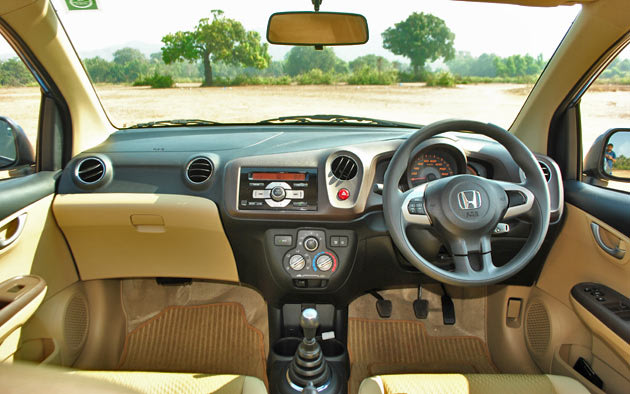

Inside, there's virtually nothing to separate the Amaze and the Brio. The dashboard layout is the same and the same hard plastics feature throughout. However, the high-quality bright fabric creates a cheerful aura and a premium feel in the cabin.
Space, Comfort and Convenience
Ask me one thing I liked most about the Amaze and I’ll tell you -- space. No matter where you’re sitting, there’s lots of space. The front seats offer plenty of kneeroom, while six-footers will have no trouble getting comfortable in the rear. The Amaze’s roomy feel extends to the boot as well, which has a class-leading capacity of 400 litres.
The easy-to-live-with cabin offers a great driving position and logical dashboard. Driver seat is height adjustable and steering column collapsible. The interior is suitable for a long road trip with bolstered seats, lots of storage zones, two cup holders and four bottle holders.
Engine
In India, Honda and diesel were two words that never belonged in the same sentence, but not anymore. Even though it took three years for Honda to develop a diesel engine for India, they’ve got exactly what we wanted. First things first -- the 1.5 litre i-DTEC engine returns the highest fuel economy in the Indian passenger car segment of 25.8 km/l, as per test data. What’s more interesting is that the impressive mileage is achieved without any compromise on performance. It offers a maximum power output of 100PS@3600rpm and 200 Nm of torque @1750 rpm. The diesel engine is coupled to a five-speed manual transmission.
The Amaze will also be available with the Brio’s peppy 1.2-litre, 88bhp petrol engine, linked to either a five speed manual or a five-speed automatic transmission.
Performance, Ride and Handling
The 1.5 litre i-DTEC engine pulls smoothly from as low as 1200-1500 rpm with no bogs or hesitation. Power builds up in a very linear fashion that you wouldn’t notice the turbo kick in at 3000 rpm. It delivers plenty of mid and high end torque to keep you moving swiftly along the streets. However, compared to the popular 1.3 litre DDiS engine, the 1.5 litre i-DTEC is not as much fun to drive but certainly more practical and more efficient.
Since we are not used to engine noise in a Honda car, the i-DTEC might unexpectedly be audible inside the cabin. Otherwise, the cabin remains well- insulated against wind/road noise. The petrol Amaze, on the other hand, is typical Honda – silent, peppy and fun to drive.
The heavier diesel engine required a stiffer front suspension than the Brio, but not taking a toll on the ride quality. The steering is slightly heavier, hence confidence-inspiring and the handling is worlds better than that of the others in the segment.
The Amaze has a ground clearance of 165 mm, good enough to clear most speedbreakers and potholes. Overall, the steering, brake and throttle all help make this an easy car to drive happily.
Safety
The Amaze features Honda’s active and passive safety technologies including dual SRS front airbags, ABS, EBD, 3-point ELR seat belts and impact-mitigating headrests. The front body structure is equipped with Pedestrian injury mitigation technology designed to absorb impact energy. The rear too has a shock absorbing structure which protects occupants in case of a rear crash.
Conclusion
Amaze comes to the market with a tough assignment -- to regain Honda’s lost sheen. It’s not going to be an easy fight with the Maruti Dzire, a car that’s already a household name. But the Amaze has advantage in terms of space, mileage, appearance and above all, it has reliability of a Honda car. Now, Honda has priced the Amaze on par with the Dzire too. Hmm...looks like the Amaze is going to give Dzire a run for its money.
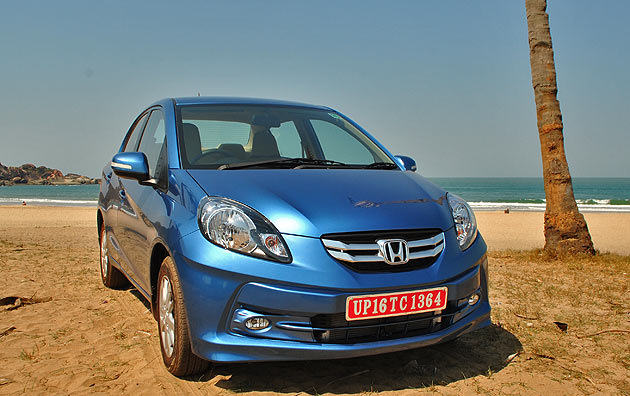
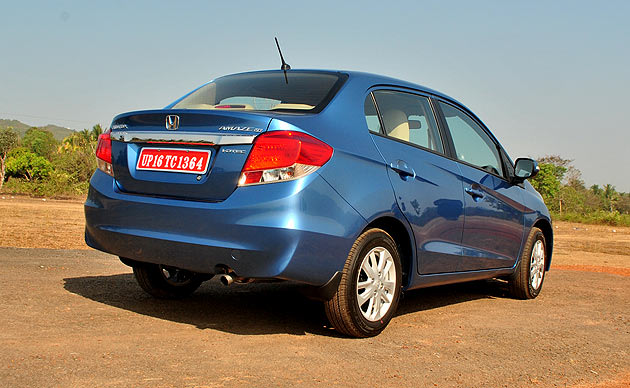

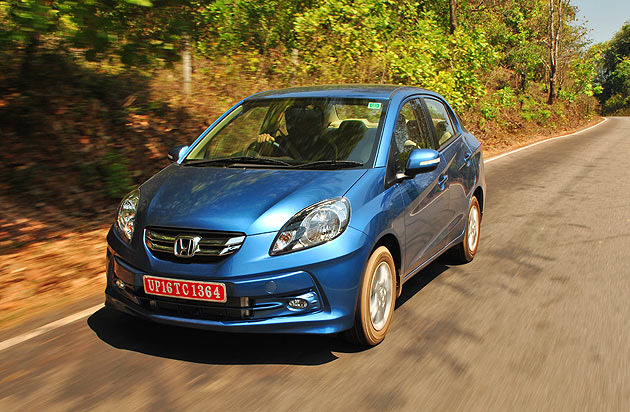
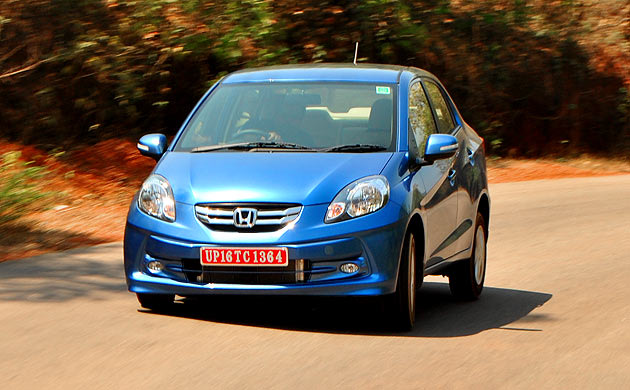
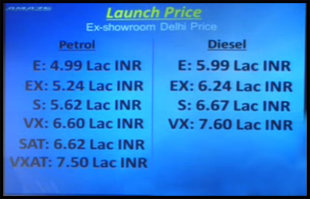
0 comments:
Post a Comment